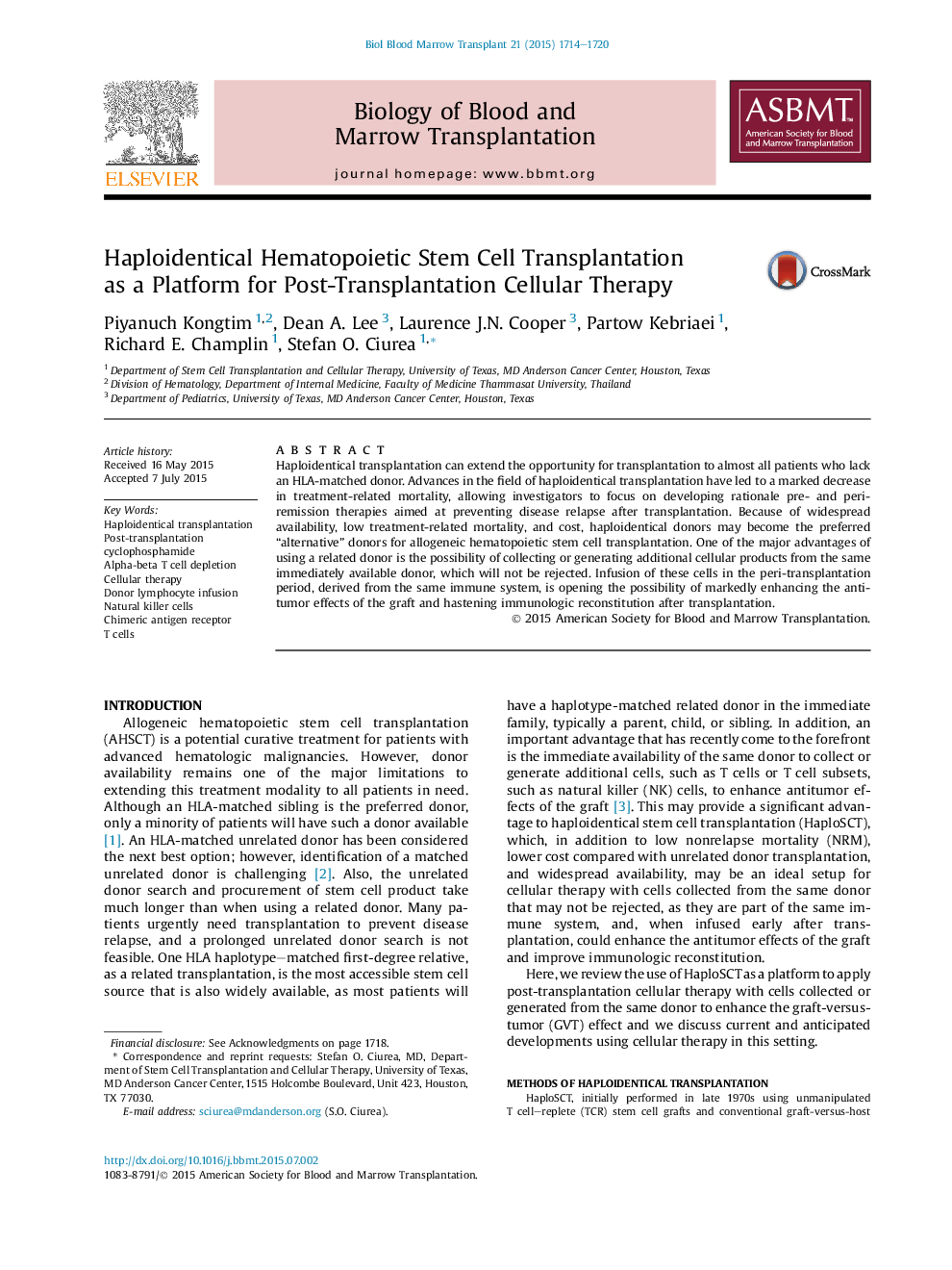| Article ID | Journal | Published Year | Pages | File Type |
|---|---|---|---|---|
| 2101309 | Biology of Blood and Marrow Transplantation | 2015 | 7 Pages |
•Haploidentical transplantation can serve as platform for cellular therapy using additional donor cells•A number of cellular therapy products (natural killer cells, chimeric antigen receptors T cells, etc.) are being investigated to enhance the graft-versus-tumor effect and immunologic reconstitution.
Haploidentical transplantation can extend the opportunity for transplantation to almost all patients who lack an HLA-matched donor. Advances in the field of haploidentical transplantation have led to a marked decrease in treatment-related mortality, allowing investigators to focus on developing rationale pre- and peri-remission therapies aimed at preventing disease relapse after transplantation. Because of widespread availability, low treatment-related mortality, and cost, haploidentical donors may become the preferred “alternative” donors for allogeneic hematopoietic stem cell transplantation. One of the major advantages of using a related donor is the possibility of collecting or generating additional cellular products from the same immediately available donor, which will not be rejected. Infusion of these cells in the peri-transplantation period, derived from the same immune system, is opening the possibility of markedly enhancing the antitumor effects of the graft and hastening immunologic reconstitution after transplantation.
